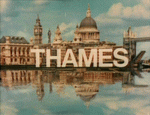A Voyage Round My Father (1982) |
|
A Voyage Round My Father (1982) |
|


|
| BUY IT |
| General | Extras | ||
| Category | Comedy / Drama | Biographies-Cast-4 screen text on Laurence Olivier | |
| Rating |

|
||
| Year Of Production | 1982 | ||
| Running Time | 80:46 | ||
| RSDL / Flipper | No/No | Cast & Crew | |
| Start Up | Menu | ||
| Region Coding | 4 | Directed By | Alvin Rakoff |
|
Studio
Distributor |
 Shock Entertainment |
Starring |
Laurence Olivier Alan Bates Elizabeth Sellars Jane Asher |
| Case | Alpha-Transparent | ||
| RPI | $9.95 | Music | Marc Wilkinson |
| Video | Audio | ||
| Pan & Scan/Full Frame | None | English Dolby Digital 2.0 mono (448Kb/s) | |
| Widescreen Aspect Ratio | 1.78:1 | ||
| 16x9 Enhancement |
 |
||
| Video Format | 576i (PAL) | ||
| Original Aspect Ratio | 1.33:1 | Miscellaneous | |
| Jacket Pictures | Yes | ||
| Subtitles | None | Smoking | No |
| Annoying Product Placement | No | ||
| Action In or After Credits | No | ||
Released locally by Shock under their Classic Literature on Film banner is John Mortimer's autobiographical work A Voyage Round My Father. Mortimer is described by Wikipedia as "an English barrister, dramatist, screenwriter and author". His name appears in the credits of a number of notable movies (The Innocents, Tea with Mussolini), and dozens of renowned TV series (Rumpole of the Bailey). This autobiographical work, based on the author's reflections on his life and the impact upon it by his father, began as a series of radio plays which were then adapted for TV and later a stage play, until finally it was turned back into a TV play, which is the production we have here. Along the way noted actors have been associated with the work, including Mark Dignam, Ian Richardson, Alec Guinness and, more recently, Derek Jacobi. For this 1982 production for Thames Television the father and son are played by Laurence Olivier and Alan Bates, two of the truly illustrious names in British acting. However, this book definitely should not be judged by its cover.
This is the story of the relationship between John Mortimer and his blind father, Clifford. With voice-over narration from Alan Bates, in the opening scene we see depicted the minor accident which resulted in the father's blindness, a condition which apparently was never acknowledged in the Mortimer household. The blind barrister's wife, here played by Elizabeth Sellars (The Barefoot Contessa) , became her husband's eyes, negating her own existence and sacrificing herself to the service of her sightless husband. Despite the trimmings of the courtroom and English country gardens, this is the standard tale of the father who wishes his son to follow in his footsteps, in this case practise law, while the son wants to become a writer. We see the young John, played by Alan Cox, son of actor Brian Cox (Young Sherlock Holmes), packed off to school where he suffers the tyranny and eccentricities of the British educational system of the time. However, the lucky lad matures into Alan Bates, becomes a lawyer, marries his first wife, the lovely Jane Asher (The Masque of the Red Death), still secretly desires to be a writer and has continued conflicts with his sire. Unfortunately this is all a little dull. Very polite and talky, but with little substance, the action takes place mostly in the interiors of the Mortimer household. For these scenes Mortimer's actual Oxfordshire home was used, and it is indeed attractive. There are little excursions into the lovely garden, to John's school and we do see pater at work in the courtroom.
Interestingly this was not the first time Olivier and Bates had played father and son. Alan Bates' screen career began in television with a handful of roles from 1956 to 1959. Then in 1960 he was cast to play Olivier's son in Tony Richardson's The Entertainer. (This film also marked the screen debut of Albert Finney. Those were the days!) Olivier, of course, was one of the nobility of the British stage and, to a lesser extent, screen. Alan Bates was to star in many films, which included A Kind of Loving, Zorba the Greek, Georgy Girl, Far From the Madding Crowd, Whistle Down the Wind, Butley and Women in Love, to name but a few. By the time the two men reunited for A Voyage Round My Father Alan Bates was an actor of ripe maturity, in the middle of an illustrious career on stage and screen. Lord Olivier, on the other hand, was near the end of his career. This once great stage actor had been charismatic on screen in Shakespeare (Hamlet, Henry V, Richard III) and popular Hollywood romances (Wuthering Heights, Rebecca, Pride and Prejudice). In his last years he was unwell, but for too many years he had deteriorated into a parody of his former self, with almost every role sounding like an evil hissing Nazi. Here the courtroom scenes display Lord Olivier at his hammiest. Kenneth Branagh has forged a career from blatantly copying Olivier, and now the original is looking like a parody of Branagh. By contrast the remainder of the performances are rather low-keyed and believable, though there is nothing here that provides any memorable drama or comedy.
This is a competent, dull performance of a play that today seems terribly outdated. I doubt, though, that thirty years back it would have seemed any better. It's just a dull work.
The transfer of this film is quite decent considering its age and origins. Although the original aspect ratio was 1.33:1, this presentation is at the ratio of 1.77:1 and is 16x9 enhanced. There are no real framing problems, though a number of shots look awkwardly composed, with the top and bottom of the image sliced off. This does nothing for the otherwise competent photography of Tony Pierce-Roberts ( A Room With A View). Nevertheless, the widescreen presentation looks pretty good.
The image is sharp and clear, though there is a considerable amount of grain, with considerable detail. Surprisingly shadow detail is also pleasing, as in the interiors of cars early in the piece. The colour is attractive, with interiors subdued but accurate, with colourful excursions into Mortimer's Oxfordshire garden. Skin tones are a little ruddy, but quite acceptable. There are quite a few film artefacts, flecking and a few dark scratches, but these are minor and soon forgotten. There is a blue tinge down the right hand of the screen which is more notable in the darker scenes.
There are no subtitles.
| Sharpness | |
| Shadow Detail | |
| Colour | |
| Grain/Pixelization | |
| Film-To-Video Artefacts | |
| Film Artefacts | |
| Overall |
There is one audio stream, English Dolby Digital 2.0 Mono at 448 Kbps.
The audio here is really only required to deliver the dialogue, and that it does without any problems. The soundtrack is clean and clear, with every syllable crystal clear. There are no sync problems and no noise, such as crackle or hiss, noted. The music, courtesy of Marc Wilkinson (The Royal Hunt of the Sun) is of the genteel chamber music variety, suitably attractive and subdued. The reproduction of the music is more than adequate, with clarity and a decent bass.
| Dialogue | |
| Audio Sync | |
| Clicks/Pops/Dropouts | |
| Surround Channel Use | |
| Subwoofer | |
| Overall |
This is a fairly basic release, with only the test bio of Olivier. A pity we miss out on Alan Bates and John Mortimer.
The menu screen is simple but visually and aurally appealing. The top half of the widescreen image is composed of a composite still of the four leads, which dissolves half-way down the frame into a montage of live action scenes from the production. The soundtrack is comprised of a section of the attractive orchestral score.
With one still of the actor, we get four screens of potted biography. It is totally superficial and full of empty praise. It may be judged by the spelling of "glamour" as "glammer".
There is censorship information available for this title. Click here to read it (a new window will open). WARNING: Often these entries contain MAJOR plot spoilers.
NOTE: To view non-R4 releases, your equipment needs to be multi-zone compatible and usually also NTSC compatible.
The local release misses out on the bios of Alan Bates and John Mortimer. Considering the shallowness of the one we do get, I guess that they are no great loss.
Don't let the English pedigree fool you. With these two stars, and the writer, you would be forgiven for expecting more. However, for those who think anything with an English accent is superior, and who appreciate arch, over-the-top performances there should be a lot to enjoy here. However, don't look for substance, originality or passion.
The DVD is pretty good, considering its age and TV origins, though there is nothing extra other than a perfunctory textual bio of Laurence Olivier.
| Video | |
| Audio | |
| Extras | |
| Plot | |
| Overall |
| Review Equipment | |
| DVD | SONY BLU RAY BDP-S350, using HDMI output |
| Display | Samsung LA55A950D1F : 55 inch LCD HD. Calibrated with THX Optimizer. This display device is 16x9 capable. This display device has a maximum native resolution of 1080p. |
| Audio Decoder | Built in to DVD player. Calibrated with THX Optimizer. |
| Amplification | Onkyo TX-DS777 |
| Speakers | VAF DC-X fronts; VAF DC-6 center; VAF DC-2 rears; LFE-07subwoofer (80W X 2) |